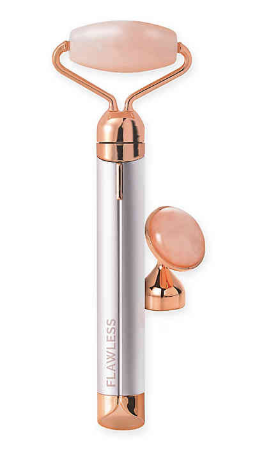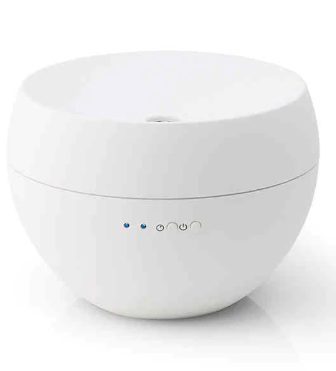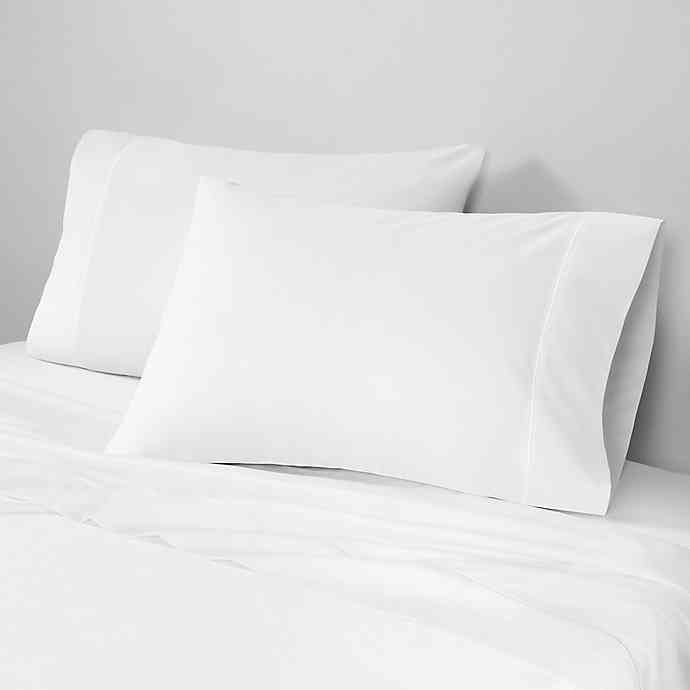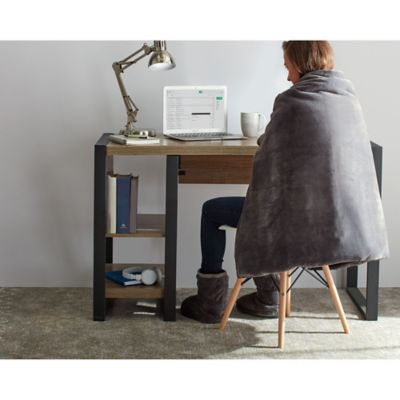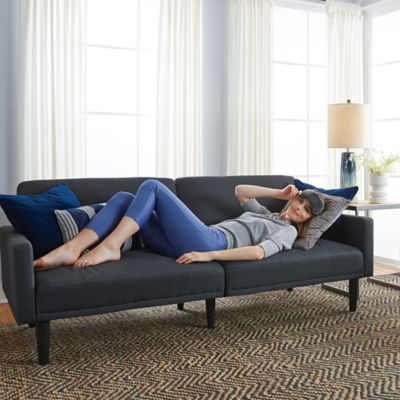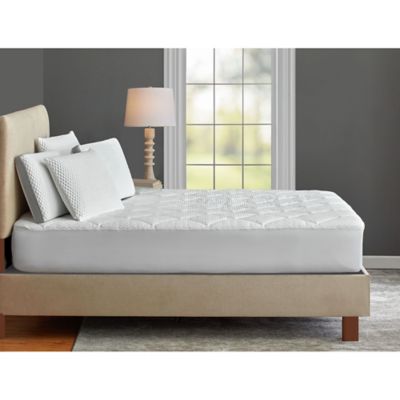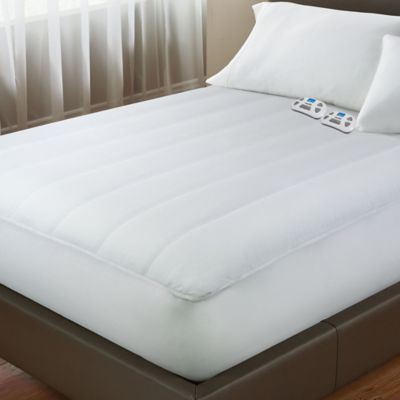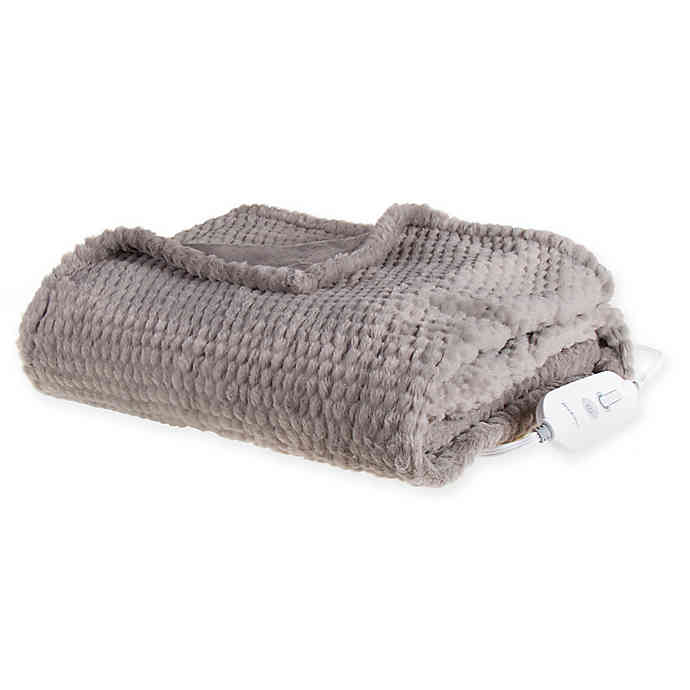How To ACTUALLY Get A Better Night’s Sleep, According To Experts
When it comes to self-care, we're devoted to our skin-care regimens, our fitness routines, and our dietary preferences...but in the midst of our busy schedules, we often spend far less time ensuring that we get enough sleep. That's why we partnered with Bed Bath & Beyond to cull together expert advice on how we can all get a better night's sleep.
Having trouble sleeping? You’re not alone. In 2014, about 35% of adults in the United States received less than seven hours of sleep per 24-hour period (needless to say, not enough).
AdvertisementADVERTISEMENT
While this could be a symptom of an untreated medical condition like sleep apnea, insomnia, or narcolepsy (having trouble sleeping is a plenty-good reason to make an appointment with a doctor), your habitual sleeplessness may have a simpler solution than you thought. In fact, plenty of doctors believe that the cure can be as obvious as taking time to reset and prepare for sleep before jumping into bed. “If your complaint is, ‘my car just can’t take the exit on the road fast enough,’ the first question is, ‘how much room did you give yourself to slow down? When did you start tapping the brakes?’” says Michael Grandner, PhD, director of the Sleep and Health Research Program at the University of Arizona. “Did you do it two seconds before your exit, in which case you miss your exit, or did you give yourself enough time to slow down?” The analogy is intended to convey the fact that most of us don’t give ourselves enough time to slow down at night. We charge through our days, directly jump into bed, while our organs are still pacing at overdrive. “You’d have to be really sleep deprived to not need a ritual,” says Joshua Tal, PhD, a clinical psychologist who specializes in sleep.
AdvertisementADVERTISEMENT
Animated by Kenny Brandenberger & Anthony Velen, Illustrated by Twisha Patni
What’s a nightly ritual, then? It might be something like changing into pajamas, brushing your teeth, washing your face, and reading a book — but it can also be more individualized, like meditating, drinking non-caffeinated tea, or going through an elaborate skin-care regimen. “There’s great data on a lot of these things, but they seem to be very dependent on the individual,” says Dr. Grandner.
“I like to do diaphragmatic breathing [before bed] because that’s activating the parasympathetic nervous system, the antidote for fight or flight,” says Dr. Tal. “It’s teaching the body to let go, so [this breathing] can be used in bed as well to increase relaxation.”
Janet Kennedy, PhD, another clinical psychologist who specializes in sleep, recommends reading fiction as a tenant of your bedtime routine. “I find that it’s fast and effective at separating the mind from all the other things that are going on in it,” she explains.
Why do these rituals help us get more sleep? Gary K. Zammit, PhD, associate clinical professor of psychiatry at Mount Sinai, says the reasoning goes back to Psychology 101. Dr. Ivan Pavlov, who pioneered the concept of classical conditioning, presented a group of hungry dogs with food, causing the dogs to salivate. After a few trials, he paired the food with a bell chime, and the dogs would salivate at the combination. “Eventually, all Pavlov needed to do was ring the bell and the dog would salivate, and that was what Pavlov described as a conditioned stimulus,” says Dr. Zammit. “What we want to do is pair the bed and the sleep environment and those sleep circumstances with relaxation and the anticipation of sleep.” So, if you use the same face serum every night right before you go to bed, then your body will start to associate the face serum with sleepytime. The same goes for those special pajamas or that one, beloved sound bath.
AdvertisementADVERTISEMENT
Animated by Kenny Brandenberger & Anthony Velen
Things you don’t want to include in your nightly ritual: caffeine, spicy food, loud music, aerobic activities. A less obvious suggestion: “Avoid doing ‘awake activities’ in bed,” says Dr. Zammit. “Sometimes people will associate being in bed with all of these awake activities, and then they just turn the light out and expect that the bed will be associated with sleep. It’s important for people who are having trouble sleeping to engage in activity outside the bedroom, so when they get into the bedroom, it’s really associated with sleep.”
As he sees it, the bed should be reserved for sleep, exclusively. Having a sleep environment that feels comforting and even luxurious makes a huge difference in one’s ability to fall asleep: Invest in quality sheets, weighted blankets, noise machines, mattress toppers, black out curtains, and so on. “Make the bed a place you can’t wait to go,” advises Dr. Kennedy.
shop 7 products
In order to keep your bedroom sacred, most doctors feel you should avoid cramming for deadlines, snacking, or engaging in lively videochat sessions while in bed. Take all that to the living room, and reserve your room for relaxation. “Your bed is not a hangout; it’s not a place to watch TV or eat dinner,” says Dr. Tal.
Moreover, having good sleep hygiene means setting regular bedtimes and rise times, Dr. Zammit notes. And with that comes limiting or nixing naps during the day. “You want to set that ideal window for sleep to occur,” he says.
Animated by Kenny Brandenberger & Anthony Velen, Illustrated by Twisha Patni
Still, people who get too attached to their nightly rituals can also run into trouble: They might have trouble falling asleep if their routine is thrown off or while traveling. “Focus on these things as sleep enhancers and not sleep aids,” says Dr. Kennedy.
AdvertisementADVERTISEMENT
Of course, there’s no one-size-fits-all solution to getting better sleep, but Dr. Zammit suggests the “try it and track it” method to see what works for you. “Try something out and see if it really does make a difference,” he says. “Pay attention to how you slept that night and how you feel the next day.”
But more importantly, pay attention to your body. “There’s this idea of ‘time for bed,’” says Dr. Tal. “That’s garbage. You go to bed when your body is telling you ‘I want to sleep.’” The trick is setting up circumstances that will ease you into sleep, because while a good night’s sleep should feel luxurious, it shouldn’t be a luxury.
AdvertisementADVERTISEMENT










